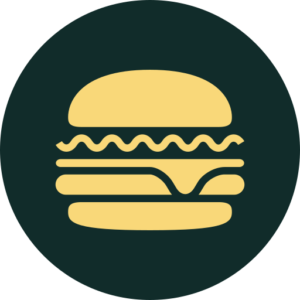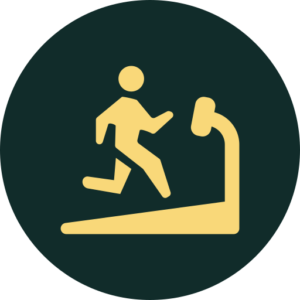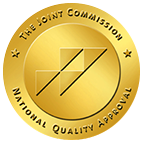
Types of Addiction: Chemical & Behavioral




Understanding Addiction
Advancements in science have given professionals insight into the disease of addiction – making addiction increasingly treatable for more individuals. However, there is still much to be done in terms of understanding addiction and what specifically triggers a compulsive or addictive response in the brain. It is important to understand the signs of addiction and types of addiction in order to seek potential treatments that will assist with long-term recovery from addiction.
So, where to start? Many people may not be aware, but there are essentially two types of addiction. While chemical addition is typically discussed most often, individuals can also suffer from behavioral addictions – where no chemical dependency is involved. Treatment and therapy options are available for chemical addictions and behavioral addictions alike. However, it is essential to understand some of the differences in order to determine what treatment options would be best suited for your specific situation. In addition, identifying the common signs of when a recreational behavior or activity becomes a compulsive addiction is key for understanding how to approach the recovery or treatment process.
Ultimately, the more education and understanding one has on the topic of addiction will ultimately assist with long-term recovery from chemical or behavioral addiction. At the end of the day, any addiction should be treated as a serious chronic disease that alters the brain and impacts an individual’s decision-making.
Chemical Addictions
The disease of addiction is most often discussed in terms of the presence of a substance use disorder or dependency on a mind-altering chemical. In recent years, much has been explored regarding chemical addiction and dependence – especially in the midst of an opioid crisis.
The path to drug addiction or substance abuse begins with an individual voluntarily consuming drugs or alcohol. However, over time the person consuming the mind-altering substance loses the ability to choose or control how or when they ingest the substance. In these cases, substance use that may have initially started recreationally becomes a compulsive addiction.
Being able to identify the warning signs of chemical addiction and substance abuse is essential for loved ones. Additionally, if you personally feel as though your consumption of mind-altering substances is becoming a concern reviewing the common warning signs can help you decide on the action you wish to take.
There are many signs that substance use has crossed over to addiction. It is important to note that while these signs are common among those suffering from chemical addiction, the individual’s behavior as a whole should be considered before classifying them as having an addiction. Individuals who are suffering from chemical addiction will usually display signs ranging from changes in personality and mood to changes in physical health.
Signs of Chemical Addiction




Treating A Chemical Addiction
Prevention should ideally be the first step in managing chemical addiction and substance abuse. However, in many cases, loved ones may find that it is too late to prevent active addiction once the signs of substance abuse are present.
If you or a loved one is displaying some of the signs of chemical addiction, it may be time to consider treatment options with a medical or behavioral health professional. Chemical addiction takes a toll not only on the addict but also on loved ones close to the addict. Later we will discuss how loved ones can help support treatment and recovery for chemical addictions.
Behavioral Addictions
Similar to chemical addiction, a behavioral or process addiction occurs when an individual is addicted to a certain behavior or process. Behavioral addictions are not as commonly discussed as chemical addictions. Some individuals may have a hard time understanding how one could become addicted without the presence of a mind-altering substance.
The concept of true addictions existing in individuals without the presence of drugs or alcohol is relatively new. However, the fact is that addiction does not necessarily need to involve the abuse of chemical substances. It isn’t until relatively recently that the medical and professional community have acknowledged behavioral addictions in medical literature such as the Diagnostic and Statistical Manual of Mental Disorders (DSM). As more information becomes available on behavioral addiction, individuals suffering from this addiction have the potential to recognize their addiction and seek available treatment.
Behavioral addictions can include anything from gambling to internet addictions. Addictions to certain behaviors or processes are similar to chemical addiction in that the individual who is addicted displays little or no control regarding the behavior they are addicted to. According to new data, compulsive behaviors can be labeled as addictions since they have many commonalities in terms of brain patterns and how the addiction may play out in the lives of those affected.
Research has shown that process addictions such as gambling are similar to substance use disorder in terms of clinical expression, brain origin, comorbidity, physiology, and treatment. Behavioral addictions can include anything from gambling to an addiction to the internet.
Examples of Behavioral/Process Addictions
Someone who has problems with Adderall and alcohol should seek immediate help. They can contact someone online, call their doctor, or speak to a friend.
Someone with ADHD who has addictions should pursue dual diagnosis treatment. They will receive diagnoses for the substance abuse disorders that they face.
They will then receive treatment for ADHD and their substance abuse disorders. A person can take new ADHD medications, including ones that do not stimulate the nervous system. Therapies that help with ADHD like cognitive behavioral therapy can also apply to drug addiction.
Someone without ADHD can receive two diagnoses of substance abuse disorders at once. They can also go through screening to see if they have another behavioral health disorder. They may not have ADHD, but they may have depression or an anxiety disorder.

Gambling Addiction
In most cases, gambling in moderation is a socially accepted recreational behavior. However, gambling becomes an addiction when the behavior escalates to the point where finances, relationships, or other aspects of life are negatively impacted. Individuals who obsess over gambling, cannot control any aspect of gambling, avoid other aspects of their lives, neglect financial responsibilities, experience intense guilt, continue to take larger and more frequent risks, or are dishonest about their behavior, the line has likely been crossed into addiction. The consequences of gambling addiction can manifest in relationship problems and moderate to severe financial problems.

Sex Addiction
Sex addiction is defined by a compulsive need to perform sexual acts. Similar to chemical addition, individuals with sex addiction seek out sexual encounters or acts in order to achieve a short-term “fix”. Sex addiction can become highly dangerous if individuals are engaging in increasingly risky sexual behavior – an individual may experience a negative impact on personal relationships and a decline in physical and behavioral health. Individuals may display behavior such as seeking out multiple sexual partners, compulsively viewing sexual images or media, compulsively masturbating, or a compulsive need to be in sexually stimulating situations.

Shopping Addiction
Shopping Addiction is also known as compulsive shopping or compulsive buying disorder. Individuals with a shopping addiction often have the compulsion to spend money regardless of the need for the product or the individual’s financial status. Shopping addicts may be addicted to spending money on certain products such as clothing or real estate or may compulsively buy things generally. These individuals often experience the same high or rush that individual with a substance use disorder experience when using mind-altering substances.

Eating Addiction
Addiction to food or eating operates similarly to chemical addiction by triggering a similar reward pattern in the brain. Specifically, processed junk foods influence the brain’s reward centers, which can lead to compulsive overeating or eating foods that are unhealthy. Generally, food addiction is not associated with a lack of willpower or control but can be traced to the impact that dopamine from overeating or eating unhealthy foods has on the individual’s brain.

Exercise Addiction
Often associated with individuals who have a body image disorder or eating disorder. Engaging in exercise releases chemical in the brain and nervous system that create a sense of pleasure or reward. Some consider exercise addiction to be partially due to the pleasure response in the body. Exercise addiction can cause bodily harm and injury by creating undue stress on the body.

Electronics Addiction
Electronics Addiction affects individuals who find that watching television, using their smartphone, or browsing the internet has become problematic in that the behavior interferes with day-to-day functioning. For example, if browsing the internet negatively impacts an individual’s professional life, educational studies, or personal relationships – an electroncis addiction may be the cause.

Gaming Addiction
Video Game Addiction has also been classified as Gaming Disorder in some studies. Individuals who may be addicted to video games may first exhibit impaired control over gaming, unable to control the frequency or duration of time spent playing video games. Then individuals will likely begin to give increased priority to playing video games over other responsibilities or interests. And lastly, gaming continues or even escalates despite any negative consequences.
These are only some examples of behavioral or process addictions. If an individual is experiencing negative consequences of engaging in a specific behavior, they may be suffering from a behavioral addiction. Many of the signs of behavioral addictions are similar to the signs commonly associated with chemical addiction. However, in some cases, behavioral addictions are left untreated for a longer period of time.
The Difference Between Behavioral & Chemical Addictions
While the concept of addiction, in general, is not always the easiest to define, there are clear indicators of a present addiction. At its core addiction is defined by the dependence on a substance or specific behavior/activity.
Chemical and behavioral addictions both have the ability to negatively influence almost all parts of an individual’s day-to-day life. The most significant difference being that chemical addiction involves the use and abuse of mind-altering substances. While behavioral addictions are centered around a specific activity or process. Despite differences in what an individual may be addicted to, most types of addition feed a similar reward system in the brain.
One of the few differences being that the physical effects of chemical addition often appear in individuals at a quicker pace than in individuals who are addicted to behaviors such as gambling or shopping.
Treatment and Recovery
Whether you or a loved one is suffering from addiction, there is hope and resources available to start a journey in recovery. While it may seem obvious to seek treatment or support for a chemical addiction, seeking help for a behavioral addiction may seem less obvious to some.
However, through advancements in research, professionals are becoming more informed of how to properly address and treat all forms of addiction. Through new advancements and the experiences of others, it is clear that personalized treatment for specific addictions can ultimately lead to long-term recovery. Through treatment, professionals can assess the type of addiction present as well as diagnose any co-occurring disorders. It is possible for individuals to suffer from chemical and behavioral addictions simultaneously. While it is not always the case, it is common for both types of addiction to exist at the same time.
Individuals have options when it comes to seeking professional treatment for addiction. Treatments for addiction include specialized treatment for an individual’s medical and behavioral health. Most commonly behavioral counseling, therapy, the introduction of healthy coping skills, and education on addiction are used to help treat addiction.
For chemical addictions, medications may be used to treat withdrawal symptoms and assist with the recovery process. Whereas individuals suffering from behavioral addictions may require specialized treatment for addictions to food or sex. Sustainable recovery often depends on appropriate treatment.
If you or a loved one is struggling with addiction, it is suggested to reach out to a trusted medical or behavioral health professional that can address your concerns. Professionals have the ability to assess your specific needs and then make a treatment recommendation that is specific. Despite what addition is present, recovery is possible – the first step to gaining a meaningful life away from addiction is to seek the most appropriate treatment for your specific condition.
References
- National Institute of Behavioral Health. (n.d.). Substance use and co-occurring mental disorders. Retrieved from https://www.nimh.nih.gov/health/topics/substance-use-and-mental-health
- United State Surgeon General. (n.d.). What can you do to prevent opioid misuse?. Retrieved from https://addiction.surgeongeneral.gov/sites/default/files/SG-Postcard.jpg
- National Institute on Drug Abuse. (n.d.). Treatment approaches for drug addiction Drugfacts. Retrieved from https://nida.nih.gov/publications/drugfacts/treatment-approaches-drug-addiction
- Partnership to End Addiction. (n.d.). How to spot the signs of teen or young adult substance use. Retrieved from https://drugfree.org/article/spotting-drug-use/
- Alavi, S. S., Ferdosi, M., Jannatifard, F., Eslami, M., Alaghemandan, H., & Setare, M. (2012). Behavioral Addiction versus Substance Addiction: Correspondence of Psychiatric and Psychological Views. International journal of preventive medicine, 3(4), 290–294.
- American Psychiatric Association. (n.d.). Substance -related and addictive disorders. Retrieved from https://www.psychiatry.org/File%20Library/Psychiatrists/Practice/DSM/APA_DSM-5-Substance-Use-Disorder.pdf
- Healthline. (n.d.). Gambling addiction. Retrieved from https://www.healthline.com/health/addiction/gambling
- Tyler, M. (July 2018). Sex addiction. Retrieved from https://www.healthline.com/health/addiction/sex
- Tyler, M. (August 2016). Shopping addiction. Retrieved from https://www.healthline.com/health/addiction/shopping
- Gunnars, K. (December 2019). How to overcome food addiction. Retrieved from https://www.healthline.com/nutrition/how-to-overcome-food-addiction
- Stubblefield, H. (August 2017). Exercise addiction. Retrieved from https://www.healthline.com/health/exercise-addiction
- Raypole, C. (January 2020). Feel ‘addicted’ to TV? Here’s what to look for (and what to do). Retrieved from https://www.healthline.com/health/tv-addiction
- Mammoser, G. (January 2018). Is video game addiction a behavioral health issue?. Retrieved from https://www.healthline.com/health-news/is-video-game-addiction-mental-health-issue
TAKE THE FIRST STEP
From all of us at New Method Wellness co-occurring treatment center, we wish you peace and serenity in knowing that you or your loved one will get the necessary help.
ACCREDITED BY:

